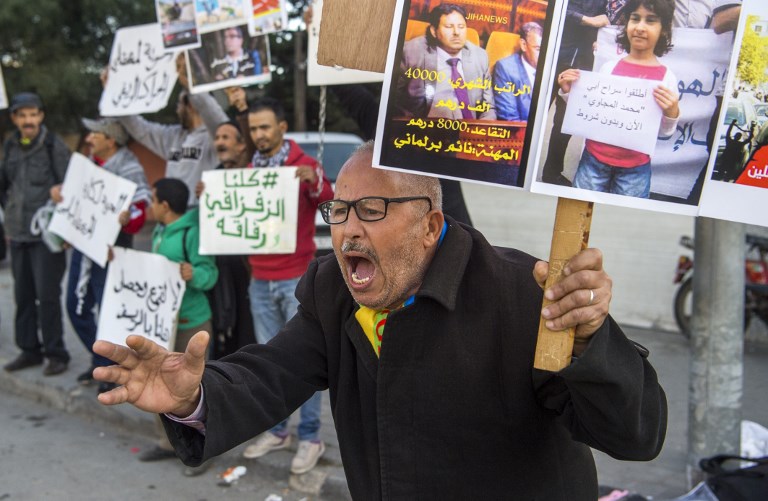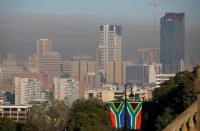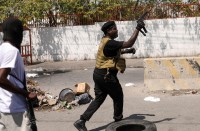
RABAT, Morocco (AFP) – The jailing of demonstrators for up to 20 years over unrest in 2016 sparked anger in Morocco on Wednesday, with some warning it could threaten further instability.
At the end of a nine-month trial the figurehead of the Al-Hirak al-Shaabi or “Popular Movement”, Nasser Zefzafi, was sentenced to 20 years along with three others for “plotting to undermine the security of the state”.
A further 49 people were sentenced late Tuesday to jail terms of one to five years, along with fines, at a Casablanca court.
Social unrest in the northern Rif region began in October 2016 after the death of a fisherman and spiralled into a wave of protests as people demanded jobs and development.
Supporters left the court on Tuesday shouting slogans such as “Long live the Rif”, a region where the marginalised Berber ethnic group is the majority.
Following the sentencing, rallies were held overnight in the port city of Al-Hoceima — the epicentre of the protest movement — and nearby Imzouren, where a school was burned down according to local media.
“It is not possible to decide on a link between the fire and the sentences,” local authorities told AFP as an investigation was launched to determine the cause of the blaze.
Protests were limited according to local authorities, with the exception of Al-Hoceima where a gathering of one detainee’s family and their neighbours made up fewer than 80 people.
There have been appeals on social media for further protests in Rabat and Casablanca, as well as Brussels, Paris and Madrid which are home to a large Moroccan diaspora.
Others have called for a general strike in Morocco.
A ‘mockery of justice’
Nabila Mounib, leader of the opposition Unified Socialist Party, decried the “disastrous decision by the state (which) threatens the stability and cohesion of the country.”
The Moroccan Association of Human Rights (AMDH) described the judgement as a “mockery of justice”, while numerous Moroccan media stressed the severity of the sentences.
Amnesty International said the “guilty verdicts and heavy sentences returned in the cases of 53 Hirak protesters… must be overturned due to the unfair nature of their trials”.
Authorities said the case was handled in compliance with global justice norms and in the presence of international observers and the media.
“The case will of course be re-examined at the court of appeal… I hope that the sentences delivered will be more just,” said the minister of state for human rights, Mustapha Ramid, in an online statement.
Several hundred protesters gathered Wednesday in front of the parliament building in Rabat, waving Berber flags, photos of Zefzafi and banners reading “Freedom for Hirak detainees”.
Criticism filled social media, as thousands of users replaced their profile photos with a black image and wrote of the “shame” they felt in the face of such “injustice”.
Sentences against paedophiles were more lenient than those meted out to the protesters, some commented.
Some internet users warned of a return to a period of widespread rights abuses under king Hassan II who reigned from the 1960s to the 1990s.
The recent unrest in the Rif region began when fisherman Mouhcine Fikri was crushed to death in a rubbish truck, while he was apparently trying to retrieve swordfish seized by authorities as it was caught out of season.
© Agence France-Presse







